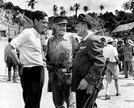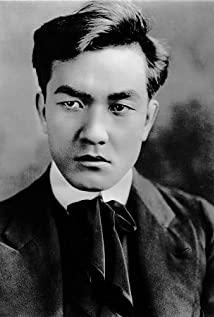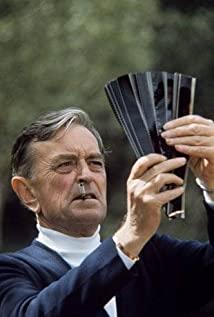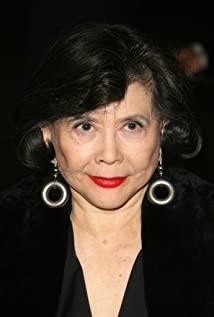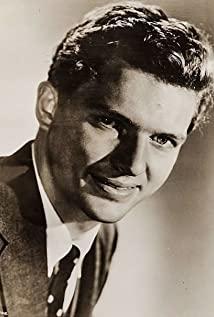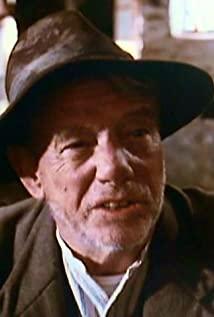The opening of the movie is straightforward. It seems to be a conflict between the Japanese army and the captured British army. Savage or civilized, this is a problem.
Could David Lean be so simple? Of course not. Next, the conflict between the Japanese and British prisoners is no longer the focus of the movie. Therefore, some people think that the film is trying to show a different national character. Americans are pragmatic and flexible, but they are unavoidably cunning and rascal. The British are rigid and have a strong aristocratic temperament. The Japanese are stupid and lacking in the spirit of Bushido. human nature. What's more, I actually saw racial discrimination in the movie. Japanese people are also Asians. David Lean is so shabby Japanese. It's not discrimination. This view is really beyond my expectation. The Chinese audience is very enlightened, but David Lean is far behind. It is no wonder that they do not have the subject of political and ideological education.
I like this movie because the real conflict is not related to a specific person or ethnic group. In fact, David Lean has been trying to avoid people falling into his trap. He wants the audience to notice that whether Japanese, British, American or Canadian, they should be "people" first, they have commonalities, and secondly, characteristics. There is a detail in the movie to illustrate this point. After the last Japanese soldier who escaped was killed, the camera stayed on a photo of the fallen Japanese soldier for a few seconds so that the audience could see the person in the photo clearly. These short seconds are enough to make the audience's thoughts temporarily move away from the plot, stop to think, and fall down to be an enemy, but only an enemy. He has family and loved ones, and he is a person with affection. The war makes all this no longer important. No matter who he is, the father of the child or the son of the parent, you must regard him as a target rather than a person. The overwhelming experience of Canadians and Japanese soldiers is also one of the contradictions that the film wants to show. The Canadian guy is kind-hearted, he is not cowardly, as can be seen from his performance in the second encounter with the Japanese. That time, he stepped forward to kill the Japanese colonel without hesitation, and this time, he could kill without hesitation, because he was from behind instead of front, and the enemy is no longer a person facing him alive, no. It will make him have the slightest sympathy. In addition, there is a small detail. When discussing the selection of candidates for the bridge bombing mission, Shields agreed to the participation of the Canadians. One of his reasons was that this could make the team more international. He might be a bit spoof. Perhaps it is also hinting to us that which country these people come from is not worthy of our attention. This movie is not comparing the national character of the British, Americans or Japanese. If we can jump out of the superficial characteristics, we can see the commonalities in the depths. Then, we must first see the commonalities before we can see the true characteristics or essence.
Therefore, we can see that the contradiction between the characteristics of Colonel Nelson and Shields is the main line of the film and the real conflict point of the film. For Nelson, there is nothing more important than rule, law, and principle. Not only is he not afraid of death, but he can also give up the lives of other soldiers. Therefore, the Japanese colonel used to close the hospital to coerce him to give up this trick. It doesn't work either. For Hillz, it’s the opposite. Don’t talk about the law. Even if it’s a military mission, nothing is more important than life. The British captain who was on the bridge bombing mission was injured, even if he ordered Shields to give up his mission. Shields also didn't obey.
What's interesting is that these two people with completely different personalities don't have too many rivalries. They only met at the beginning and end of the movie, but they just passed it briefly. The conflict between them is not explicit but implicit. In fact, the director deliberately arranged a "dark battle" between the two. The two were unaware of it, and the audience might not be able to discover it.
It can be said that this secret battle is divided into two rounds by Shields' escape and return to bomb the bridge. In the first round, Nelson and Shields disagreed on the issue of escape. Shields is slick and sophisticated, and it's not too bad to mess around in the prison camp, but he soberly realizes that this is not a place to stay for a long time. He advocates that he must find a way to escape to survive. Nielsen adheres to principles in everything and analyzes problems with logic and law. On this issue, he believed that since the order to surrender was made by the superior, if he escaped, he would violate the order. Although there was no major turmoil in this small disagreement, the characteristics of the two were vividly expressed. On the same issue, their starting points are completely different. One starts from the needs of survival, while the other talks about laws and principles everywhere.
In the first round, Nelson's principle of persistence seemed inappropriate under this special situation, and it could even be said to be a bit stupid. Not only did he not intend to flee, but he also had to talk to the Japanese colonel about the Geneva Conventions and insisted on the rule that the Japanese military executives should not participate in labor. For this, he suffered so much and almost died. Is it worth his death to get the treatment of a non-working officer? Even, he did not hesitate to take the lives of other soldiers. But the principle is the principle, "It is principle" is Nielsen's favorite saying. Even so, Nelson's stubbornness won the respect and support of the soldiers. After that disagreement, only one soldier escaped with Shields, and most of them stayed. In the end, Nelson's seemingly stupid behavior defeated the barbarism of the Japanese army. Not only did he receive the respect and treatment he deserved, he also won better living conditions for the captives and greatly reduced the death rate of the prison camp. In contrast, Shields's first round was much worse, and he was the only one of the three who escaped. Escape from the jungle made him even more dead. In this round, Nelson and Shields scored 1:0.
Next, in the second round, Shields successfully escaped and escaped the danger, but had to accept a new mission, returning to the Japanese prisoner camp and blowing up the River Kwai Bridge. At this time, Nelson, who remained in the captive camp, had just recovered, so he decided to rectify his subordinates, not only to boost morale, but also to repair the bridge. And his decision to help the Japanese army repair the bridge surprised the military doctor Slipton. Even if he could work honestly, he was worthy of the enemy, but Nelson's behavior was too much. He not only wants to build a bridge, but also a good one. Nelson seems to have forgotten who he is helping to build the bridge. In this regard, Nelson has a theory. He told the military doctor, will you not save the patient because he is the enemy when you operate on the patient? The doctor was left speechless by his rebuttal. As far as Nelson is concerned, even in the midst of war, he cannot abandon his life creed. If he does it, he must do well. This may be related to professional ethics, personal reputation and personal morality. But to a certain extent, this is something that Nielsen has always upheld. This kind of thing is not given up because of war or the enemy is an enemy. It should be said that this is social morality.
Speaking of this, the different characteristics between Nelson and Shields have become clearer. As for the contradiction represented by the two, I prefer to call it an "intrinsic contradiction of individual existence", but this characteristic has been amplified in the two. As an individual living in society, on the one hand, the individual needs to pay for the survival of the individual itself, which we call the "selfish" side; but on the other hand, the individual also has to pay for the survival of the whole, even having to Giving up one's own interests, even life, we call the "selfless" side. Here, I use quotation marks, which means that the use of these two words is not emotional, and there is no intention to put labels for good or bad, just for illustration. For example, you have a physical reaction, such as sneezing, hiccups, or farting. For health reasons, your unscrupulous reaction is understandable, but if there are people around you, you have to converge a lot, or even ignore it. And health factors and try to hold back. Why? Because you are selfless and afraid of harming the interests of others? No, because you, like Colonel Nelson, are subject to certain social rules, laws, or moral requirements, so you will naturally do so without asking for reasons. Similarly, Nelson is not selfless. It is not his goal to improve the treatment of soldiers in the captive camp. His goal is only to adhere to the so-called principles. Fortunately, he succeeded.
Unfortunately, he also failed. When he insisted too much and finally forgot something, what he held up to the end turned out to be what he opposed. "What I have done?" When Nelson said his last sentence, did he understand what he did? In my opinion, he was so devoted to repairing the bridge that he had forgotten who he was. In the second round, the two met again to surprise each other, but the movie only arranged a very simple line, that is, "You". This meeting was meaningful and dramatic. I think this is the classic part of the movie. This time the meeting between the two not only made Nelson wake up. At the same time, it also allows the audience to understand the difference between the two. On the surface, although Shields appears to be slick and sophisticated, he always obeys instinct and does not follow the social dogma generally observed by people, but at a critical moment, he But he can also spare his life for the right choice; and Nelson, he only knows that he will defend his principles to the death, but he doesn't really think about the meaning behind these principles. As Shields said to the wounded British captain, whether it is a so-called military mission or a shit command, what is more important than a human life? War makes people forget humanity, and only remembers hatred, in order to win or lose. For this reason, thousands of people have lost their lives. How many people can finally wake up like Colonel Nelson and ask themselves, what did I do? For what?
View more about The Bridge on the River Kwai reviews





